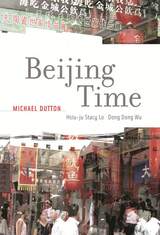
“Where is the market?” inquires the tourist one dark, chilly morning. “Follow the ghosts,” responds the taxi driver, indicating a shadowy parade of overloaded tricycles. “It’s not called the ghost market for nothing!” And indeed, Beijing is nothing if not haunted. Among the soaring skyscrapers, choking exhaust fumes, nonstop traffic jams, and towering monuments, one discovers old Beijing—newly styled, perhaps, but no less present and powerful than in its ancient incarnation. Beijing Time conducts us into this mysterious world, at once familiar and yet alien to the outsider.
The ancient Chinese understood the world as enchanted, its shapes revealing the mythological order of the universe. In the structure and detail of Tian’anmen Square, the authors reveal the city as a whole. In Beijing no pyramids stand as proud remnants of the past; instead, the entire city symbolizes a vibrant civilization. From Tian’anmen Square, we proceed to the neighborhoods for a glimpse of local color—from the granny and the young police officer to the rag picker and the flower vendor. Wandering from the avant-garde art market to the clock towers, from the Monumental Axis to Mao’s Mausoleum, the book allows us to peer into the lives of Beijingers, the rules and rituals that govern their reality, and the mythologies that furnish their dreams. Deeply immersed in the culture, everyday and otherworldly, this anthropological tour, from ancient cosmology to Communist kitsch, allows us to see as never before how the people of Beijing—and China—work and live.

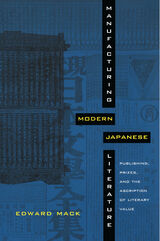
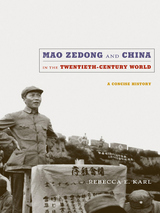
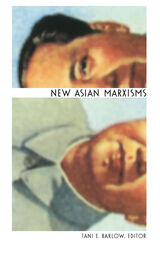
While some of these essays take up key thinkers in Marxist history or draw attention to outstanding problematics, others focus on national literature and discourse in North and South Korea, the "Mao Zedong Fever" of the 1990s, the implications of Li Dazhao's poetry, and the Indian Naxalite movement. Illustrating the importance of central analytical categories like exploitation, alienation, and violence to studies on the politics of knowledge, contributors confront prevailing global consumerist fantasies
with accounts of political struggle, cultural displacement, and theoretical strategies.
Contributors. Tani E. Barlow, Dai Jinhua, Michael Dutton, D. R. Howland, Marshall Johnson, Liu Kang, You-me Park, William Pietz, Claudia Pozzana, Alessandro Russo, Sanjay Seth, Gi-Wook Shin, Sugiyama Mitsunobu, Jing Wang
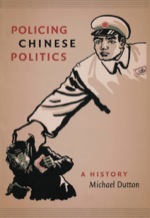
The economic reform period that followed Mao Zedong’s rule contained a hint as to how the magic spell of political faith and commitment could be broken, but the cost of such disenchantment was considerable. This detailed, empirical tale of Chinese socialist policing is, therefore, more than simply a police story. It is a parable that offers a cogent analysis of Chinese politics generally while radically redrafting our understanding of what politics is all about. Breaking away from the traditional elite modes of political analysis that focus on personalities, factions, and betrayals, and from “rational” accounts of politics and government, Dutton provides a highly original understanding of the far-reaching consequences of acts of faith and commitment in the realm of politics.
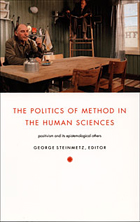
Contributors explore and contrast some of the major alternatives to positivist epistemologies, including Marxism, psychoanalysis, poststructuralism, narrative theory, and actor-network theory. Almost all the essays are written by well-known practitioners of the fields discussed. Some essayists approach positivism and anti-positivism via close readings of texts influential in their respective disciplines. Some engage in ethnographies of the present-day human sciences; others are more historical in method. All of them critique contemporary social scientific practice. Together, they trace a trajectory of thought and method running from the past through the present and pointing toward possible futures.
Contributors. Andrew Abbott, Daniel Breslau, Michael Burawoy, Andrew Collier , Michael Dutton, Geoff Eley, Anthony Elliott, Stephen Engelmann, Sandra Harding, Emily Hauptmann, Webb Keane, Tony Lawson, Sophia Mihic, Philip Mirowski, Timothy Mitchell, William H. Sewell Jr., Margaret R. Somers, George Steinmetz, Elizabeth Wingrove
READERS
Browse our collection.
PUBLISHERS
See BiblioVault's publisher services.
STUDENT SERVICES
Files for college accessibility offices.
UChicago Accessibility Resources
home | accessibility | search | about | contact us
BiblioVault ® 2001 - 2024
The University of Chicago Press









